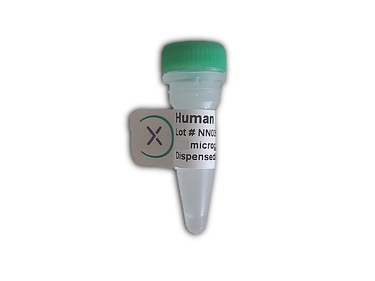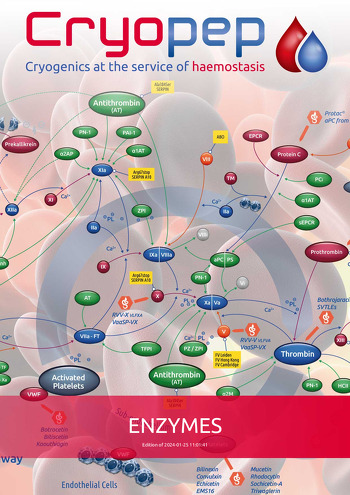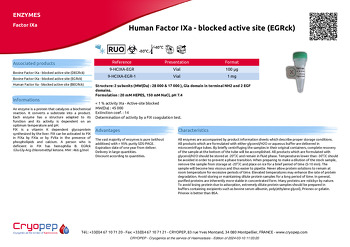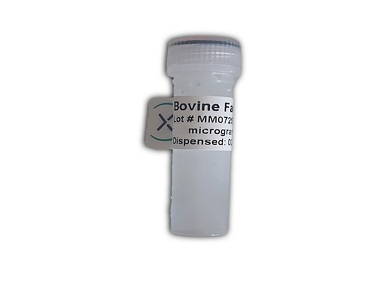HEMOSTASIS COAGULATION RESEARCH REAGENTS ENZYMES FACTOR IXA
Human Factor IXa – blocked active site (EGRck)
Structure: 2 subunits (MW(Da) : 28 000 & 17 000 ), Gla domain in terminal NH2 and 2 EGF domains.
Formulation : 20 mM HEPES, 150 mM NaCl, pH 7.4
< 1 % activity IXa - Active-site blocked
MW(Da) : 45 000
Extinction coef. : 14
Determination of activity by a FIX coagulation test.
Advantages
The vast majority of enzymes is pure (without additives) with > 95% purity SDS-PAGE.
Expiration date of one year from deliver.
Delivery in large quantities.
Discount according to quantities.
Informations
An enzyme is a protein that catalyzes a biochemical reaction. It converts a substrate into a product. Each enzyme has a structure adapted to its function and its activity is dependent on an optimum temperature and pH.
FIX is a vitamin K dependent glycoprotein synthesized by the liver. FIX can be activated to FIX in FIXa by FXIa or by FVIIa in the presence of phospholipids and calcium. A person who is deficient in FIX has hemophilia B. EGRck :Glu-Gly-Arg chloromethyl ketone. MW : 466 g/mol
Documentation
Download the product sheetPrice list, safety data sheets and notices are accessible to our registered customers.







References
| 9-HCIXA-EGR | Vial | 100 µg |
| 9-HCIXA-EGR-1 | Vial | 1 mg |
















